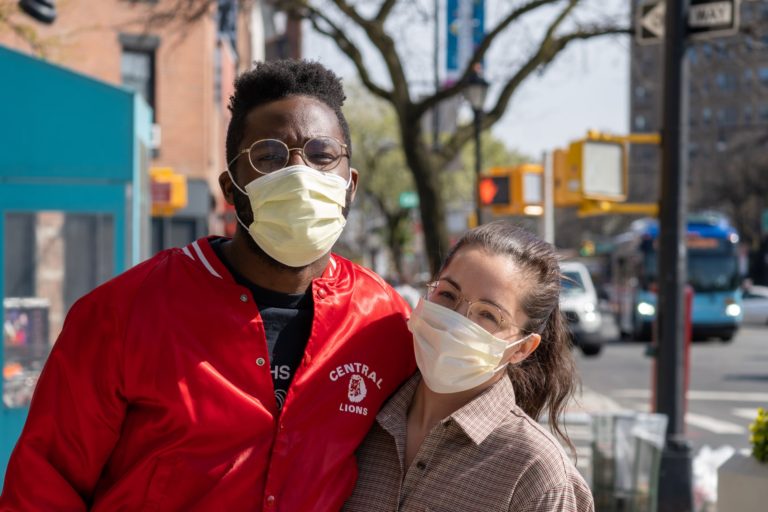Effective communication is crucial for the success of any relationship, whether it’s a romantic partnership, friendship, or professional relationship. When partners communicate effectively, it helps to deepen the bond between them, create understanding, and foster trust. However, attempting to improve communication in your relationship and can lead to misunderstandings, conflicts, and even breakups. It’s essential for partners to learn how to communicate more effectively and to practice these skills regularly.
There are several practical steps that partners can take to improve communication in your relationship. One of the most important steps is to practice active listening, which involves paying attention to what the other person is saying and responding thoughtfully. Using “I” statements can also be helpful, as it allows partners to express their feelings and needs without blaming or criticizing the other person.

Practicing empathy is another key aspect of effective communication. This involves trying to understand the other person’s perspective and feelings, even if you don’t agree with them. Avoiding mind-reading and taking breaks when needed can also help partners communicate more effectively.
Seeking professional help, such as couples therapy, can be beneficial if communication breakdowns persist. It’s also important for partners to be aware of their body language, use positive language, take responsibility for their emotions, and be willing to compromise.
Some Tips To Improve Communication In Your Relationship
Listen attentively

Listening attentively means being present and fully engaged in the conversation. It involves focusing on your partner’s words, tone, and body language to understand their perspective fully. When you listen attentively, you show your partner that you value their thoughts and opinions, which can help to build trust and strengthen your relationship. To listen attentively, try to give your partner your full attention by eliminating any distractions, maintaining eye contact, and avoiding interrupting them. Avoid judging your partner or making assumptions about what they’re saying. Instead, ask clarifying questions and restate what you think you heard to ensure that you’re fully understanding their perspective.
Use “I” statements

Using “I” statements can help you to express your thoughts and feelings in a non-confrontational way. “I” statements focus on your experience, allowing you to communicate how a specific behavior or situation makes you feel. This approach can reduce defensiveness and encourage your partner to be more receptive to your message. When using “I” statements, try to avoid blaming or accusing your partner. Instead, focus on your own experience and how it affects you. For example, say, “I feel sad when you cancel plans at the last minute” instead of “You always bail on me.”
Practice empathy

Empathy is the ability to understand and share the feelings of another person. Practicing empathy can help you to create a deeper connection with your partner and promote effective communication. When your partner expresses their emotions, try to put yourself in their shoes and imagine how they are feeling. Validate their feelings by acknowledging and accepting their emotions, even if you don’t necessarily agree with them. Show compassion and support by offering to help in any way you can.
Avoid mind-reading

Mind-reading is a common communication pitfall in relationships. It happens when you assume that you know what your partner is thinking or feeling without checking with them. Mind-reading can lead to misunderstandings, conflicts, and hurt feelings. Instead of making assumptions, ask your partner directly what they’re thinking or feeling. This can help to clarify any confusion and prevent unnecessary drama. Be curious and ask open-ended questions to encourage your partner to share more about their perspective.
Take breaks

Communication can be intense and emotionally charged, especially when discussing sensitive topics. If you feel overwhelmed or triggered, it’s okay to take a break and come back to the conversation when you feel calmer. Agree on a time to resume the conversation and use the break to reflect on your own feelings and needs. It’s important to let your partner know that you need a break and to give them a specific time to resume the conversation. This can help to avoid misunderstandings or hurt feelings.
Seek professional help

If you and your partner are looking for ways to improve communication in your relationship despite your best efforts, it may be time to seek professional help. A couples therapist can help you to identify the root of the communication breakdown, teach you effective communication skills, and guide you towards a healthier relationship. A therapist can provide a neutral space for both partners to express their thoughts and feelings and work through any challenges they may be facing. Therapy can be a valuable tool for strengthening your relationship and improving your communication skills.
Practice active listening

Active listening is a skill that requires you to fully engage in the conversation and give your partner your undivided attention. In addition to hearing their words, you need to focus on their tone of voice and body language to better understand their message. Paraphrasing what they’re saying, summarizing their message, or asking open-ended questions can help you clarify any misunderstandings and show your partner that you’re genuinely interested in what they have to say. Active listening can also help you to better understand your partner’s perspective and strengthen your relationship.
Be aware of your body language

Your body language can communicate a lot to your partner, so it’s essential to be aware of what you’re communicating nonverbally. Maintaining an open posture, maintaining eye contact, and nodding your head can show that you’re engaged in the conversation and receptive to your partner’s message. On the other hand, crossing your arms or avoiding eye contact can make you appear defensive or uninterested. Be mindful of your body language and how it may be perceived by your partner.
Use positive language

The words you use can have a significant impact on the tone of the conversation. Using positive language can help create a more optimistic atmosphere and encourage collaborative problem-solving. Instead of using negative language, try to reframe your statements positively. For example, instead of saying “I don’t want to argue,” say “I want us to work together to find a solution.” This simple shift in language can make a big difference in how your message is received.
Take responsibility for your own emotions

Taking responsibility for your own emotions is essential for effective communication. Blaming your partner for how you feel can create defensiveness and hinder constructive conversation. Instead, try to express your emotions in a way that takes ownership of them. For example, instead of saying “You made me angry,” say “I feel angry when this happens.” This can help you to express your emotions in a way that is less accusatory and more constructive.
Be willing to compromise

Compromise is a necessary part of any relationship, and effective communication requires a willingness to find a middle ground that works for both partners. Be open to listening to your partner’s needs and be willing to negotiate to find a solution that works for both of you. Being willing to compromise can help prevent arguments and promote a more positive and collaborative relationship.
Celebrate each other’s successes

Celebrating each other’s successes can help to build a stronger bond and promote a more positive relationship overall. Take the time to acknowledge and celebrate your partner’s achievements, no matter how small they may be. This can help them feel appreciated and valued, and strengthen your bond. Celebrating successes together can also help to create a positive atmosphere in the relationship, making it easier to communicate effectively about challenges and difficulties.
In conclusion, effective communication is vital for a healthy and thriving relationship. It can help to deepen the bond, create understanding, and foster trust between partners. However, communication breakdowns are common in relationships, leading to misunderstandings, conflicts, and even breakups.
To improve communication in your relationship, partners should practice active listening, use “I” statements, practice empathy, avoid mind-reading, take breaks when needed, seek professional help if necessary, be aware of body language, use positive language, take responsibility for their emotions, and be willing to compromise. By incorporating these practical steps into their communication habits, partners can enhance their skills and strengthen their connection. Effective communication can help partners feel heard, valued, and respected, and ultimately lead to a healthier and more fulfilling relationship.




